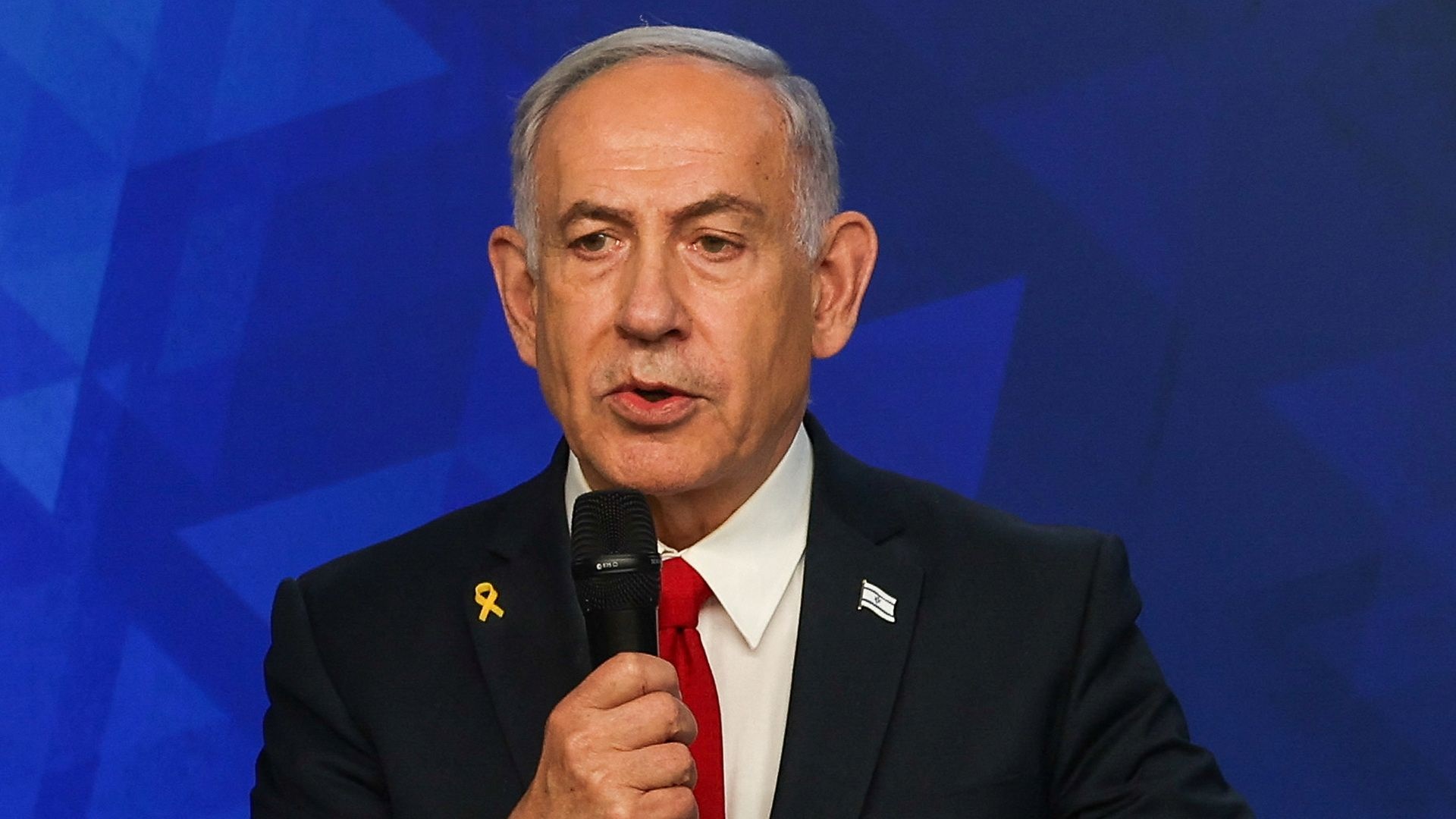Israeli Prime Minister Benjamin Netanyahu on Friday, May 23, 2025, strongly criticized UK, France, and Canada, for “emboldening Hamas”.
Netanyahu accused:
- UK Labour leader Keir Starmer,
- French President Emmanuel Macron, and,
- Canadian Prime Minister Mark Carney,
of calling for an end to Israel’s military campaign in Gaza and for the removal of restrictions on humanitarian aid.
His remarks follow statements from the UK, France, and Canada earlier this week.
The statements condemned what they described as Israel’s “egregious” actions in Gaza.
They also warned that unless Netanyahu altered his approach, the countries would consider taking “concrete actions.”
In a video message posted on X (formerly Twitter) Thursday evening, Netanyahu denounced these international appeals, asserting that Hamas is determined to “destroy the Jewish state” and “annihilate the Jewish people.”
He expressed disbelief that leaders such as Macron, Starmer, and Carney seemed to overlook what he described as this clear and present danger.
“I could never understand how this simple truth evades the leaders of France, Britain, Canada and others,” Netanyahu said.
Addressing these leaders directly, Netanyahu accused them of supporting the wrong side.
“I say to President Macron, Prime Minister Carney and Prime Minister Starmer: when mass murderers, rapists, baby killers and kidnappers thank you, you’re on the wrong side of justice,” he declared.
According to him, their stance was not promoting peace but instead encouraging Hamas to keep fighting indefinitely.
He argued that by pressuring Israel to halt its military actions and allow more humanitarian access, these leaders were giving Hamas the confidence to persist.
Netanyahu’s video statement came in the wake of a deadly attack in Washington, D.C., where two Israeli embassy employees were killed.
This incident has shocked international observers and led to heightened security measures at Israeli diplomatic missions worldwide.
Although the motive behind the attack remains under investigation, the Israeli leader used the moment to reinforce his broader warning about the threats facing Israel and the Jewish people.
In response to the attack, Keir Starmer condemned the violence, labeling it as antisemitic.
“My thoughts are with their colleagues, family and loved ones, and as always, I stand in solidarity with the Jewish community,” he said.
The UK government also issued a statement through Downing Street.
It expressed its full support for the Israeli embassy in London in light of the attack.
This escalation in rhetoric and diplomatic strain follows a week of rapidly deteriorating UK-Israel relations.
British Foreign Secretary David Lammy announced the suspension of negotiations over a new free trade agreement with Israel.
The decision came after inflammatory remarks by Israeli cabinet ministers, who called for the expulsion of Palestinians from Gaza, using language described by Lammy as “repellent, monstrous and extremist.”
These statements triggered widespread condemnation and contributed to the UK’s decision to impose sanctions on certain Israeli settlers involved in acts of violence or incitement in the occupied territories.
These developments have marked one of the lowest points in UK-Israel relations in decades.
The combined moves by Britain, France, and Canada reflect growing international unease with Israel’s conduct in Gaza.
It also reflects the unease with Israel’s conduct on the humanitarian crisis unfoldingin Gaza.
However, Netanyahu’s reaction indicates that his government does not view these criticisms as neutral or humanitarian concerns.
It rather indicates their views of the criticisms as actions that undercut Israel’s security and encourage its enemies.
Netanyahu’s accusation that Western leaders are siding with Hamas by criticizing Israel’s military campaign signals a deepening divide between his government and several of its traditional allies.
As global concern mounts over civilian casualties and restricted aid in Gaza, the Israeli leader appears determined to continue his current strategy, while lashing out at those who question it.
Meanwhile, analysts say pressure is likely to increase on Western governments to take further diplomatic or economic measures.
This they say, on the presmise if conditions in Gaza do not improve and if the Israeli government fails to alter its course.







